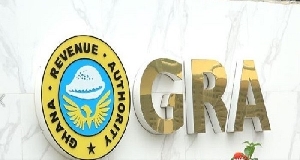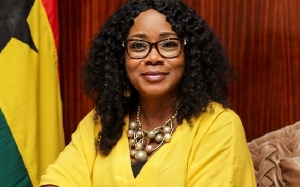By Kwame Okoampa-Ahoofe, Jr., Ph.D.
My great (near-religious) attachment to the University of Ghana has familial, personal and emotional implications. And generally speaking, whenever I learn of anything behaviorally untoward, or unsavory, having occurred at Legon, such as examination leakage and cheating, I feel personally hurt; for growing up at Kwabenya and attending the University of Ghana’s Staff Village Primary School, during the late 1960s and early 1970s, I associated all that was grand and majestic about Ghana with Legon, the country’s flagship academy.
The fact that my late father had also been a serendipitous student at Legon’s School for the Performing Arts and shortly thereafter (that is, upon graduation) been named Technical Director of the erstwhile School of Music and Drama, by the erudite Prof. J. H. Kwabena Nketia, elated me by no mean measure.
Then, of course, in 1948, shortly after its official inception, my maternal grandfather, the Rev. T. H. Sintim, of the Presbyterian Church of Ghana, had taken courses at Legon. Interestingly, my grandfather had also been Prof. Nketia’s third-grade teacher at the Asante-Mampong Presbyterian Primary School, an institution that the Rev. T. H. Sintim (then “Teacher Sintim”) had partially founded.
Still on the familial front, the seminal contribution to the establishment and curricular development of Legon by Dr. J. B. Danquah, my paternal great-granduncle and the immortalized Doyen of Gold Coast and Ghanaian politics, himself a schoolmate of the future Rev. T. H. Sintim at the Akyem-Begoro Presbyterian Middle Boys’ Boarding School, is one that I hold as dear to my heart as Akyem-Akwatia diamonds.
And so when early this year, some 13 residents of the Mensah Sarbah Hall on the campus of the University of Ghana were arrested for sexually molesting a regular female vendor who had been accused of unlawful entry and theft, I couldn’t help but be emotionally agitated. Coming in the wake of student residents of Legon’s Commonwealth Hall’s exhibition of gross disrespect for Chancellor Kofi Annan did not abate matters.
Finally, some morally acceptable measure of justice appears to be coming the way of the victim, Ms. Amina Haruna. And while it goes without saying that any act of theft and unlawful entry, such as Amina Haruna was accused of ought not be condoned under any circumstances, nevertheless, the decision of the Sarbah Hall students to take the law into their own hands, by savagely raping the poor vendor with their fingers, ought to go down the annals of both Legon and the country at large as one of the most unpardonably embarrassing moments of our academic and cultural history.
Indeed, in officially announcing their disciplinary measure, which entailed the outright expulsion of one student and the suspension of six others for two academic years, the senior administrators of the university rightly observed the fact that they have a bounden duty to induce and safeguard an environment of inviolable civility and enviable moral refinement. At the time of this writing (7/16/11), however, the fate of the six remaining culprits had not been officially divulged by university administrators, except the announcement of the equally edifying fact that all the actors in this most repugnant act of personal humiliation had been handed over to the courts.
Naturally, some of these morally depraved and utterly misguided students are threatening legal action against the Legon authorities, partly on the rather condescending grounds that the meting out of such disciplinary action before their collective and several cases have been heard in court, perforce, “prejudices the courts” (See “UG Suspends Six, Dismisses One for ‘Fingering’ Amina” MyJoyOnline.com 7/15/11). Logically, university authorities riposte that they have an obligation to discipline these outlaws and disturbers of the public peace.
Whatever the final outcome of this most painful episode, we hope that these proverbial future leaders-in-training at the nation’s higher educational institutions are learning something worthwhile about the rule of law in a democratic society; the rule of law in even a fledgling democratic culture like ours.
*Kwame Okoampa-Ahoofe, Jr., Ph.D., is Associate Professor of English, Journalism and Creative Writing at Nassau Community College of the State University of New York, Garden City. He is a Governing Board Member of the Accra-based Danquah Institute (DI) and author of 22 books, including “Dr. J. B. Danquah: Architect of Modern Ghana” (iUniverse.com, 2005). E-mail: okoampaahoofe@optimum.net. ###
Opinions of Tuesday, 26 July 2011
Columnist: Okoampa-Ahoofe, Kwame














